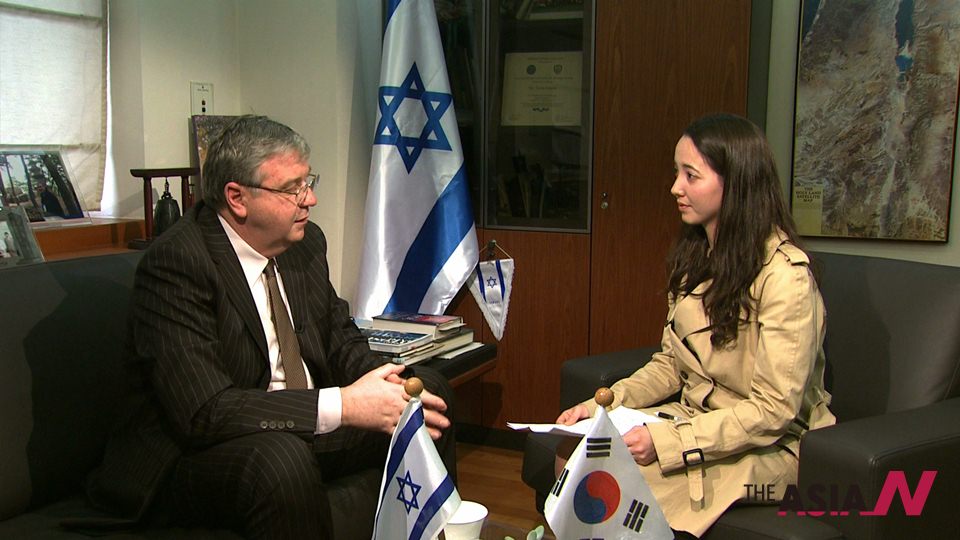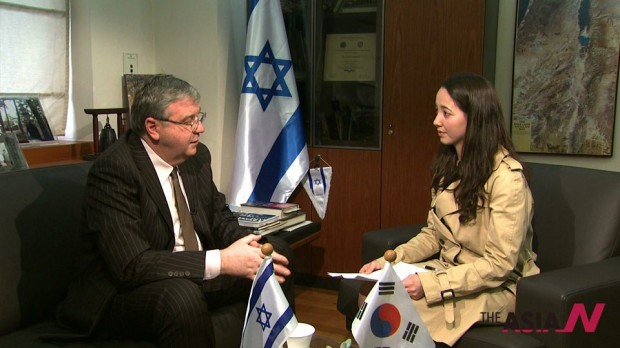
Israeli ambassador tells of the creative economy’s driving force
As Korea sets its sails to make a “creative economy,” which will create new jobs through the development of science, technology and IT, it looks to the start-up nation of Israel as a model.
Israel has a population of 7.8 million and an area of approximately 20,700 square kilometers, about one-fifth the size of South Korea, and more than 8,000 start-up companies.
On May 8, 2013, KTV (Korean Government Broadcasting Service) and The AsiaN visited the Israeli Ambassador to Korea, Tuvia Israeli, at the Israeli Embassy in Seorin-dong, Seoul, to learn about the secrets of Israel’s success as a start-up nation.

Israeli shared about the similarities between Korea and Israel and how both nations could be considered “start-up nations.”
Israeli explained about the importance of R&D. “Our small market and geopolitical situation forced us to go beyond our regional scope and compete globally, where you have to be with cutting-edge technology due to fierce competition. This requires large investment in R&D and this is the reason that Israel is always number 1 or 2 in allocating means for R&D for the last 20 years,” said Israeli.
Israel has a strong infrastructure to support start-up companies through incubators. Israeli explains how incubators can host twenty to thirty start-ups at the same time and provide basic needs like computer services as well as the guidance of experienced CEOs. “This ecosystem serves as a safety net for the people who choose to go in this start-up way,” he said.
Israel does not have big conglomerates and most of the companies are small and medium businesses. “For the young professionals, ones who finish their studies, they can choose either to join one of the existing companies, but they also have a very convenient and comfortable alternative to try something of their own. If they believe they have a good idea, they have this ambiance, they have the incubator, the financial support and that’s why many of them choose the start-up,” said Israeli.
In order to prevent the waste of talent during the three-year mandatory military service, the Israeli Defense Force has developed a system of screening talented youth, sometimes even as early as high school to lead them to further studies, to R&D that will eventually serve the Israeli Defense. The transfer of technologies between defense and military purposes to civilian ones is also unique to Israel such as the tiny camera first developed for the rocket and later used for medical purposes.
Israeli explains how the Israeli “daring mind of constantly asking questions, ” which comes from the Israeli education system contributes to the youth’s “daring thinking of creating a start-up.”




